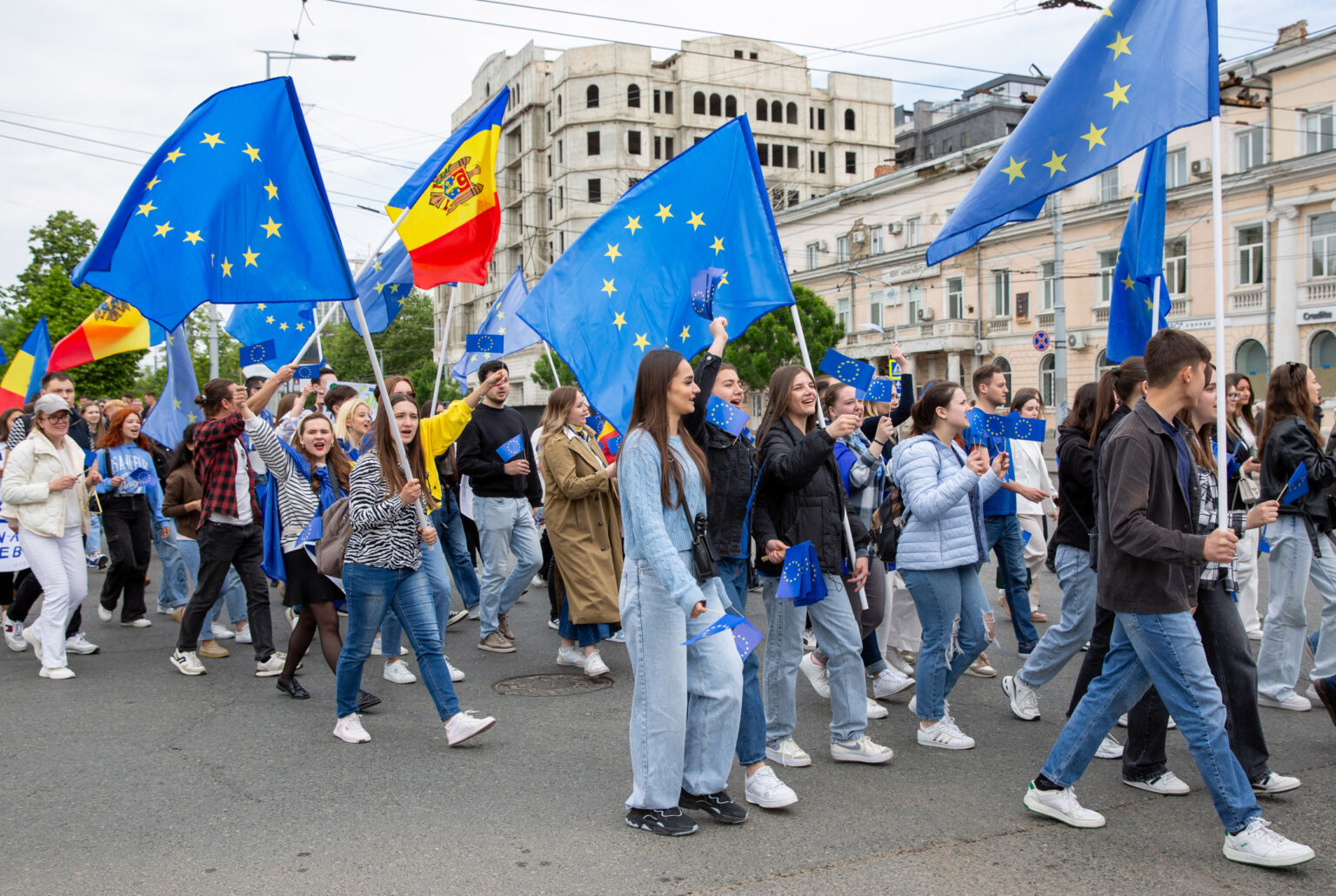A referendum in Moldova on EU membership that narrowly passed was hailed as a victory against Russia but accusations of Moscow’s continuing interference and influence in the former Soviet republic could pose problems for Brussels.
The result was on a knife edge in the east European country before it emerged that a sliver of a majority (50.46 percent) of voters backed changing the constitution to include the possibility of EU membership.
Hours before the result and with the “yes” vote lagging, pro-Western president Maia Sandu told an emergency press conference that “foreign forces” had used cash and propaganda to influence the result in which the “yes” vote won following late support from Moldova’s foreign diaspora.
But the referendum—held in conjunction with a presidential election in which Sandu got most votes but not enough to avoid a second round—was beset by accusations that Moscow had bought votes, funneled cash through proxies to ordinary voters and used social media to sow fears about EU membership.
The Kremlin which Newsweek has contacted for comment has denied interference and demanded evidence regarding Sandu’s claims.
Romanian MEP Siegfried Mureșan who is working on Chisinau’s EU accession, dubbed the referendum “a defeat for Russia” but the Kremlin is unlikely to stop trying to wield its influence in the country, both during the accession process and if successful, afterward.
“The governments of EU member states with friendlier ties to the Kremlin, such as Hungary and Slovakia, have sought to frustrate EU decision-making around Russian sanctions and military and financial support for Ukraine,” said Jeremy Holt, head of Central and Eastern Europe at geopolitical and cyber risk consultancy S-RM.
“A future pro-Russian government of Moldova that is a full member of the EU, could, along with its MEPs, similarly try to influence EU policy on Russian sanctions, energy imports and security,” he told Newsweek.
The referendum result only amends Moldova’s constitution to include pursuing EU membership and there are key issues that the bloc will want to address. Among them are the fates of the Russian-speaking region of Transnistria, which broke away in a brief secessionist war in 1992 and hosts Russian troops, as well as Gaguazia, which gained broad autonomy in 1994.
“Given the increase in Russian active measures throughout Europe, the EU is likely to strongly consider security risks during the future accession process, and the question of Transnistria’s status presents a sizable obstacle in accession talks,” said Holt.
International Crisis Group’s EU senior analyst, Marta Mucznik has said the results of the ballot highlight the challenges Brussels faces in extending EU membership to post-Soviet countries, particularly amid the ongoing war in Ukraine.
“There is a split in public opinion over Moldova’s EU integration goals and while Russian interference complicates the process, it will not deter EU leaders from progressing through negotiations,” she told Newsweek.
“However, there is a distinction between Brussels and the public opinions in EU member states,” she said, noting that accession requires unanimous consent from all 27 members.
“Fears of Russian interference and instability in Europe’s eastern neighborhood could sway public opinion, potentially increasing resistance to Moldova’s EU membership,” Mucznik said.
Brussels has played a critical role in establishing an EU Partnership Mission in Moldova to combat disinformation and hybrid warfare, but “ultimately, decisions on EU enlargement hinge on a delicate balance among EU leaders, their public opinions and Brussels’ priorities,” she added.
Holt said that not every “no” vote in the referendum was the result of Russian influence and not all Moldovan citizens back EU membership. Pro-Russian media, NGOs and political groups, as well as Russian-owned businesses, have flourished in Transnistria and Gagauzia.
“Reducing this influence and building trust in Moldovan state institutions may be a long-term process and future pro-Western governments of Moldova are far from guaranteed,” he said.
“This moment presents a unique opportunity to solidify Moldova’s European aspirations, but it is imperative to prepare for next year’s parliamentary elections,” said visiting fellow at the European University Institute Cristina Vanberghen. The Kremlin “views this as its last chance to exert control over the region,” she told Newsweek.
Russian foreign ministry spokeswoman Maria Zakharova said that the referendum for EU membership failed to win decisive support.
Kremlin spokesman Dmitry Peskov said it was “difficult to explain” how “yes” votes managed to outnumber “no” votes at such a late stage and he repeated previous claims that Moldovan authorities were stifling opposition.
Peskov also described the election campaign as “unfree,” said that the opposition had been denied the opportunity to campaign and that all eyes will be on the second round of voting on November 3.
After getting 42 percent in the first round of the presidential election vote that dovetailed with the referendum, Sandu faces off in the second round against Russia-friendly former prosecutor Alexandr Stoianoglo.
Read the full article here

